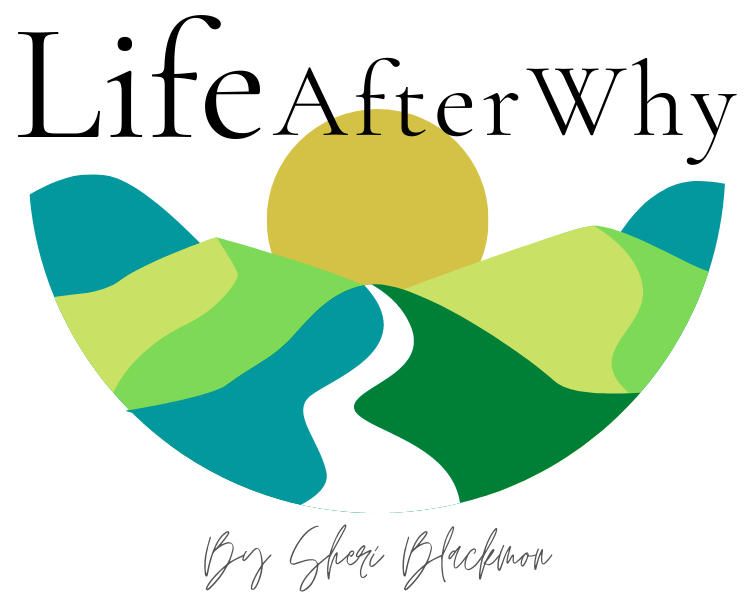What to do With the Chaos of This Moment?
On the Power of Being a Witness
It’s my first experience with being bullied. A knock on the front door of our Van Nuys ranch home comes when I am alone. It’s the summer before high school. I am excited; friends are visiting. I open the door to Paulette, my next-door neighbor and daughter of an Academy Award winning actress, now with faded glory past her prime. Paulette is a popular girl everyone secretly hates but follows, like Angelica on Rugrats. She is unpredictable. Before I comprehend what’s going on, she barges in, her posse trailing her—also my friends—and they begin to ransack my house. Drawers emptied, closets pillaged, clothes and household items strewn in wild disarray throughout the house, I withdraw to a kitchen corner in fear. As quickly as they come, they bolt, leaving the door open, but my heart closed in shame. I never find out why I was chosen that particular day and maybe there’s no logical reason. I tell my mom later that I refuse to go to Van Nuys High School in the fall. Helpless and invisible is how I feel, a microcosm of the universal experience of estrangement.
The George Floyd murder is scraping the festering wound of estrangement. Dwayne Casey, Head Coach of the Detroit Pistons, recalls an incident 54 years ago when he was an eight-year-old boy in rural Kentucky when schools were desegregated:
“I walked into a white school where I was not wanted nor welcomed…I felt helpless. I felt as if I was neither seen, nor heard, nor understood. As I have watched the events unfold in the days following the murder of George Floyd…I see how many people continue to feel those same feelings—helpless, frustrated, invisible, angry” (Gay, Jason. “Let’s Listen to What is Being Said.” WSJ, 1 June 2020, A14.).
It’s too easy to ignore these feelings with the overlay of destruction and violence, but this only encrusts the wounds. In the dissonance of the chaos and complexity right now, I’m afraid of losing my moral compass. What can I do?
My friend, Lauren, chooses the word “witness” for the power of seeing and validating another’s pain. By paying attention, listening, and allowing another narrative—not our own—to breathe, we give it air and allow it to move inside and affect us. Then, instead of telling people to move beyond the past, we acknowledge that they carry their pain and with it their story into the present, even a sense of responsibility to their forebears to remember. Do you remember an adult dismissing your pain when you were a child? Did it help you let go of it? Validation—empathy not sympathy—communicates, “I see you. You and I are not the same, but you are not alone.” This is a part of the solution and not an insignificant part because love has a power to heal.
One way to witness is to read. Isabel Wilkerson, author of The Warmth of Other Suns: The Epic Story of America’s Great Migration points out that “[t]he term narrative comes from Greek for the word knowing. And I think that that’s a powerful message because it means you cannot tell a story until you know the story” (Wilkerson, Isabel. National Endowment for the Humanities, 2015, https://www.neh.gov/about/awards/national-humanities-medals/isabel-wilkerson.) Her fifteen years of research involved interviewing more than 1,200 people to make three composite characters in her narrative about the 60 years between World War I and 1970, when more than 6 million African Americans migrated out of the South. Wilkerson’s book drew me into the personal stories of people chafing under Jim Crow laws. I felt their anguish and degradation like never before. The book expanded and remodeled my interior house and rearranged the furniture.
The costs of remodeling can be high—going out of our comfort zone, setting aside cherished viewpoints, admitting wrong, becoming agents of change—but the costs of doing nothing may be higher because an unattended house eventually succumbs to dilapidation and decay—moral and personal decay. Building empathy is a way to attend to our house, characterized by curiosity and a desire to learn from others who have different experiences—to be incarnational as Christ was. In the same WSJ article, Jalen Rose, retired NBA player and ESPN analyst calls for engagement when he invokes that “[w]e need people who aren’t black, we need people who aren’t brown. When you know these things are happening in your society…have a voice, a legitimate one, lock and step with us, protest with us, not just when it’s convenient, when it can be uncomfortable.” Witnessing unites us around universal human experiences.
Witnessing leads us to stand up for others. Rwandan genocide survivor Jacqueline Murekatete coins a compelling term as she reflects on the genocide: “People make choices and choices make history... people made choices to be bystanders and… to be upstanders… if more...Hutus had stood up and become upstanders—rather than perpetrators and bystanders—I have no doubt in my mind that the genocide would not have happened (Murekatete, Jacqueline. “Facing Today: A Facing History Blog,” 30 April 2019, https://facingtoday.facinghistory.org/interview-with-rwandan-genocide-survivor-jacqueline-murekatete).
The whole world regretted its silence on Rwanda. Are we bystanders or upstanders? Upstanders are “wise as serpents and innocent [harmless] as doves” (Matthew 10:16). Upstanders know the power of love as Martin Luther King Jr. persuasively argues:
“When evil men plot, good men must plan. When evil men burn and bomb, good men must build and bind. When evil men shout ugly words of hatred, good men must commit themselves to the glories of love.”
*Go to the February 17, 2020 post “How Enslavement Narratives Expand Our Paradigms” to read more on this topic.
The next post explores a common—and seductive—motivation we all have that keeps us from standing up for justice. To receive future posts, please subscribe at the bottom of the home page.
